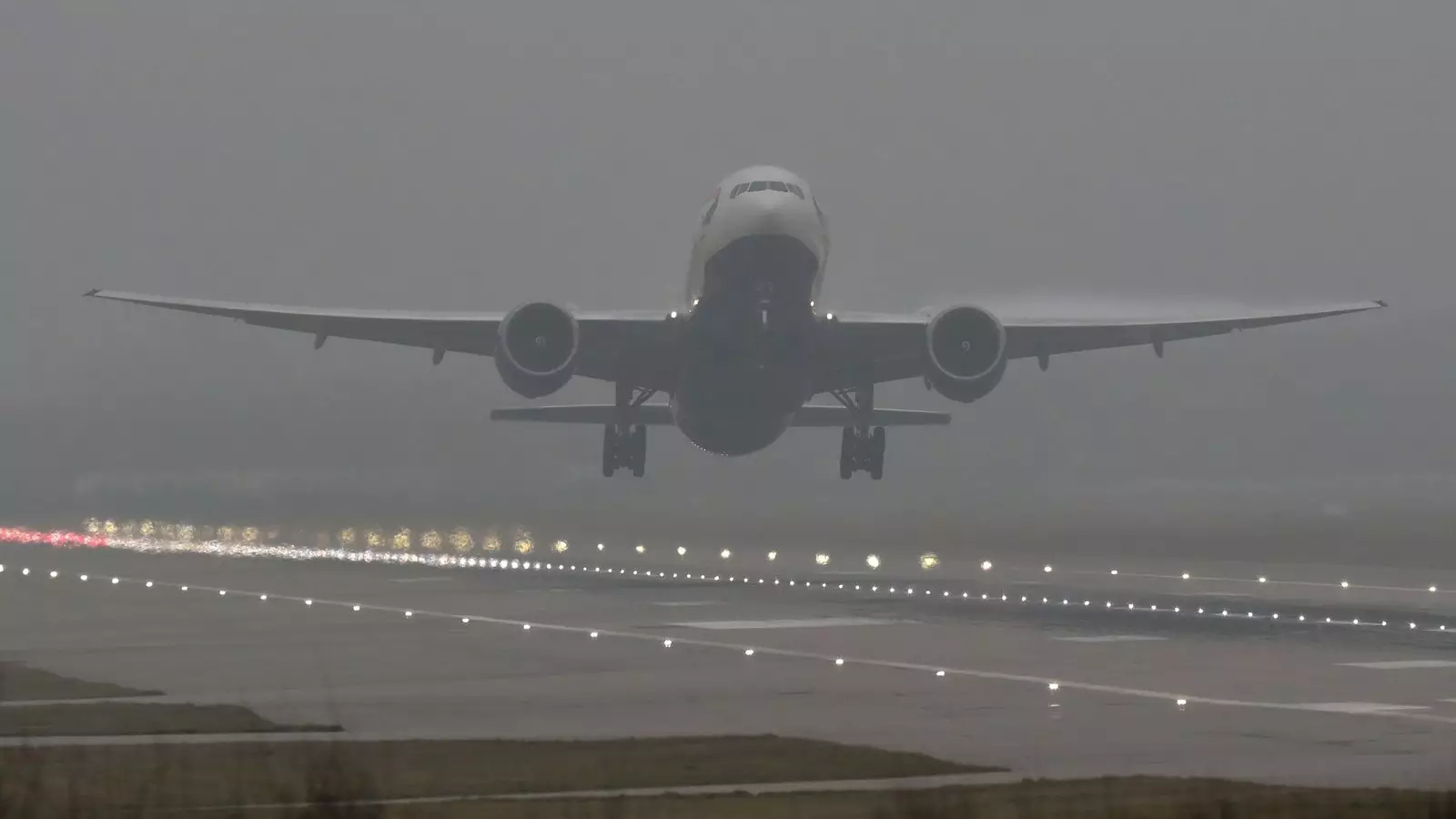Heavy fog conditions across the UK have resulted in significant travel disruptions, particularly affecting air travel. An estimated 20,000 passengers faced delays at major airports this past Friday, as reported by travel journalist Simon Calder. The National Air Traffic Services (NATS) have confirmed that the foggy weather has necessitated temporary air traffic restrictions at numerous airports, including strategic hubs like Heathrow and Gatwick. These measures aim primarily to ensure passenger safety while aiming to mitigate the disruptions caused by limited visibility.
Gatwick Airport specifically announced that flights were grounded due to low visibility, leading to numerous flight cancellations and delays throughout the day. By mid-morning, over 60 flights had been impacted, illustrating the ripple effect severe weather can have on air travel. Travelers were strongly advised to monitor their flight status before heading to the airport, underscoring the importance of proactive communication in such situations.
With the Met Office predicting that visibility could drop as low as 100 meters in certain areas, road safety also came into focus. Drivers across England were alerted to the potential hazards posed by dense fog, emphasizing the need for increased braking distances and cautious driving behavior. The combination of holiday travel and adverse weather conditions creates a critical scenario where both airport travelers and motorists must adapt accordingly.
Meteorologist Liam Eslick provided insights into the ongoing fog situation. He highlighted that the heavy fog was primarily affecting the South East and central regions of England but noted that other parts of the country were not entirely exempt from its grasp. The uncertainty surrounding the weather is particularly concerning during peak travel seasons, as families and individuals navigate their journeys over the festive period.
Looking ahead, Sunday is anticipated to be the busiest day for Gatwick Airport, with a staggering 769 flights scheduled. Despite the high volume of travel, the forecast predicts that fog conditions may persist, potentially resuming disruptions. The reliability of flight schedules is under constant threat from changing weather patterns, putting both airlines and travelers in a position of uncertainty.
Moreover, the Met Office has indicated that heavy rainfall is expected in parts of Scotland, alongside ongoing concerns of unsettled weather moving into the New Year. With Edinburgh’s famed Hogmanay celebrations on the horizon, event organizers are preparing for significant rainfall that could disrupt festivities, urging participants to dress warmly and stay updated with their travel plans.
The impact of weather on air travel goes beyond mere inconvenience; it raises questions regarding the resilience and adaptability of the aviation sector. Cancellations and delays not only affect passenger plans but can also have cascading effects on airline schedules, employee rosters, and airport logistics.
Amidst the chaos, British Airways at Heathrow faced challenges with several flights canceled or delayed due to the fog. The situation at airports like Teesside, where flights were diverted to distant locations like Newcastle and Dublin, signifies how far-reaching the consequences of such weather conditions can be. Such disruptions illustrate the need for effective crisis management strategies within the aviation industry, especially during critical travel periods.
The ongoing fog and rain in the UK serve as a poignant reminder of the unpredictability of travel logistics, especially during peak times. As the situation continues to evolve, passengers and drivers alike must remain vigilant, making it imperative to check updates, adjust plans accordingly, and prioritize safety over schedules.
The Met Office remains proactive in monitoring weather changes, issuing updates as conditions develop. For smooth travel experiences in the face of unpredictable weather, flexibility and preparation are key. As travelers navigate through potential disruptions, the importance of staying informed cannot be overstated—after all, it’s not just about reaching a destination; it’s about doing so safely, regardless of the challenges posed by nature.

Leave a Reply